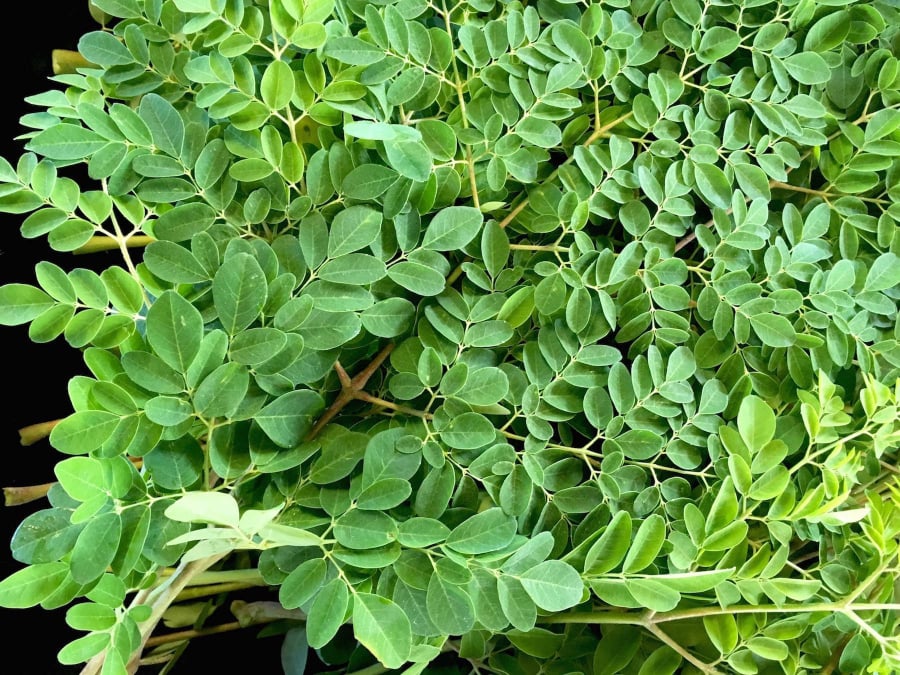Moringa, or drumstick tree, has gained a lot of attention lately for its abundant health benefits. This vegetable resembles water spinach and is often referred to as “edible bird’s nest.” So, what are the specific nutritional benefits of Moringa, and how does it impact human health?
Nutritional Value of Moringa

Moringa Vegetable
+ Rich in Protein
Moringa contains 18 essential amino acids and is an excellent source of protein. Protein is crucial for building muscles, cartilage, bones, skin, and blood. It also plays a vital role in producing enzymes and hormones. This vegetable is a popular choice among vegetarians as its protein content rivals that of meat.
+ High in Calcium and Magnesium
In 100g of edible portion, Moringa contains 185mg of vitamin C, compared to 100mg in water spinach. Moringa is an excellent source of calcium, which is essential for bone and tooth development. It also contains 147mg of magnesium per 100g, six times more than in green cabbage. Magnesium helps the body absorb calcium better. Regular consumption of Moringa can help prevent osteoporosis.
+ Abundant in Vitamins A and C
Recent studies suggest that Moringa contains four times more vitamin A than carrots and almost seven times more vitamin C than oranges. These vitamins boost the immune system, improve eyesight, and promote overall health.
+ Rich in Antioxidants
Moringa contains 46 types of antioxidants, which can neutralize the damaging effects of free radicals and protect the body from cancer. These compounds also help prevent age-related macular degeneration and cystic fibrosis.
+ Contains Cytokinin (Moringa YSP)
Moringa naturally contains cytokinin (Moringa YSP), a plant growth hormone that stimulates cell division and promotes growth. This contributes to the anti-aging properties of Moringa, making it beneficial for the skin.
Therapeutic Effects of Moringa

Moringa Soup
– Cancer Prevention: Moringa leaves contain 46 types of antioxidants, including vitamins C and A, which help neutralize the damaging effects of free radicals, thus reducing the risk of cancer.
– Anti-aging: Zeatin, a compound found in Moringa, has powerful anti-aging properties, with levels thousands of times higher than in any other plant.
Moringa also contains two compounds that prevent cancer and inhibit tumor growth, earning it the reputation of being a cancer-fighting plant. To prevent cancer and age-related degenerative diseases like macular degeneration and cystic fibrosis, include this superfood in your diet.
– Blood Sugar Control: Moringa helps lower blood sugar levels due to the presence of unique compounds in its leaves, including isothiocyanates. A recent study found that women who consumed 7 grams of Moringa leaf powder daily for three months experienced a significant drop in blood sugar levels from 13.5 to 8.
– Anti-inflammatory: The isothiocyanates, flavonoids, and phenolic acids found in Moringa leaves, fruits, and seeds have potent anti-inflammatory properties.
– Osteoporosis Prevention: With a calcium content four times higher than milk, Moringa is an excellent food for bone health.
Precautions when consuming Moringa
While Moringa offers remarkable health benefits, excessive consumption may lead to an overdose of vitamin C and calcium. It is advisable to avoid consuming it in the evening as it may cause sleep disturbances. Additionally, pregnant women, especially in the early stages of pregnancy, should refrain from consuming Moringa to prevent any potential risk of miscarriage.





































